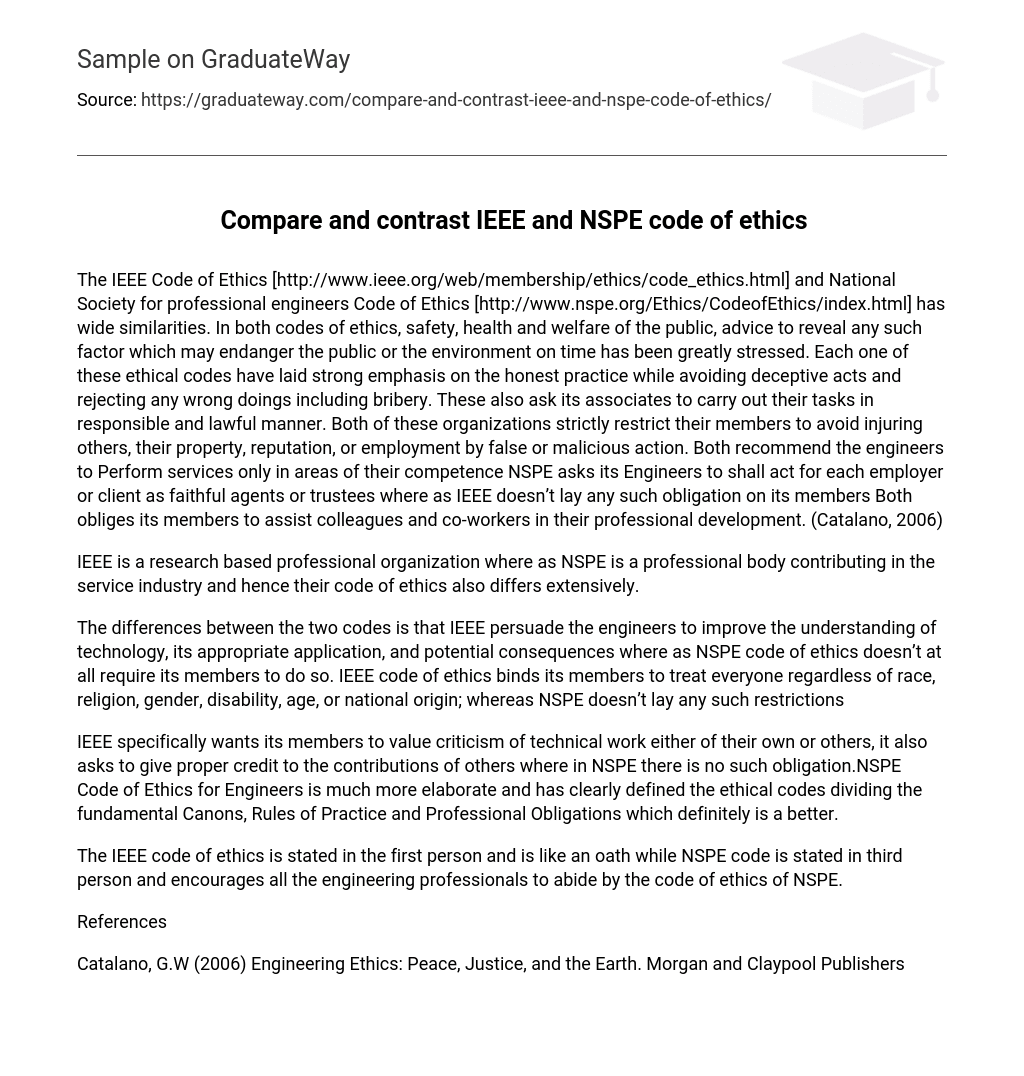The IEEE Code of Ethics and the National Society for Professional Engineers Code of Ethics have many similarities. Both codes emphasize the safety, health, and welfare of the public, as well as the importance of disclosing any factors that may endanger them or the environment in a timely manner. Honesty is strongly emphasized in both codes, with a focus on avoiding deceptive acts and rejecting wrongdoing such as bribery. Members are expected to carry out their tasks responsibly and lawfully while avoiding causing harm to others or their property, reputation, or employment through false or malicious actions. Both organizations recommend that engineers only perform services within their areas of competence and assist colleagues in their professional development.
IEEE is a research-based professional organization, whereas NSPE is a professional body contributing to the service industry. Therefore, their code of ethics also differs extensively.
The differences between the two codes are that the IEEE code of ethics encourages engineers to improve their understanding of technology, its appropriate application, and potential consequences. On the other hand, the NSPE code of ethics does not require its members to do so. The IEEE code of ethics also binds its members to treat everyone equally regardless of race, religion, gender, disability, age or national origin. However, the NSPE does not impose any such restrictions.
IEEE specifically values criticism of technical work, whether it is their own or others’. It also asks members to give proper credit to the contributions of others. In contrast, NSPE does not have this obligation. The NSPE Code of Ethics for Engineers is much more elaborate and has clearly defined ethical codes that divide the fundamental Canons, Rules of Practice, and Professional Obligations. This makes it a better option.
The IEEE Code of Ethics is written in first person and resembles an oath, while the NSPE Code is written in third person and encourages all engineering professionals to follow NSPE’s Code of Ethics.
References.
Catalano, G.W (2006) Engineering Ethics: Peace, Justice, and the Earth. Morgan and Claypool Publishers





